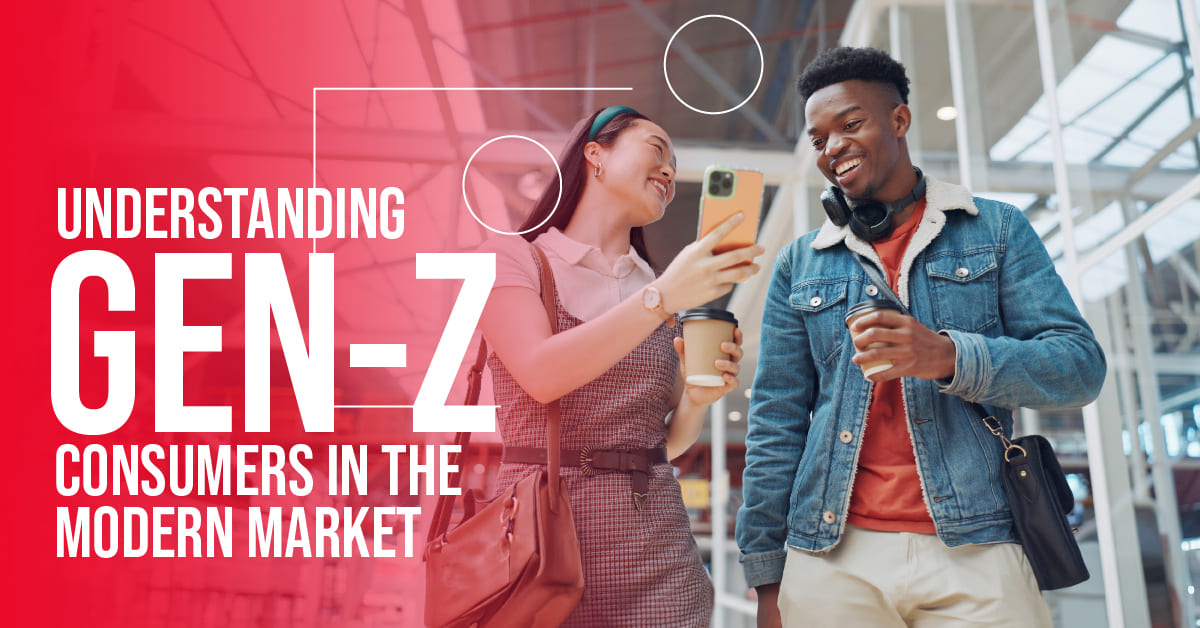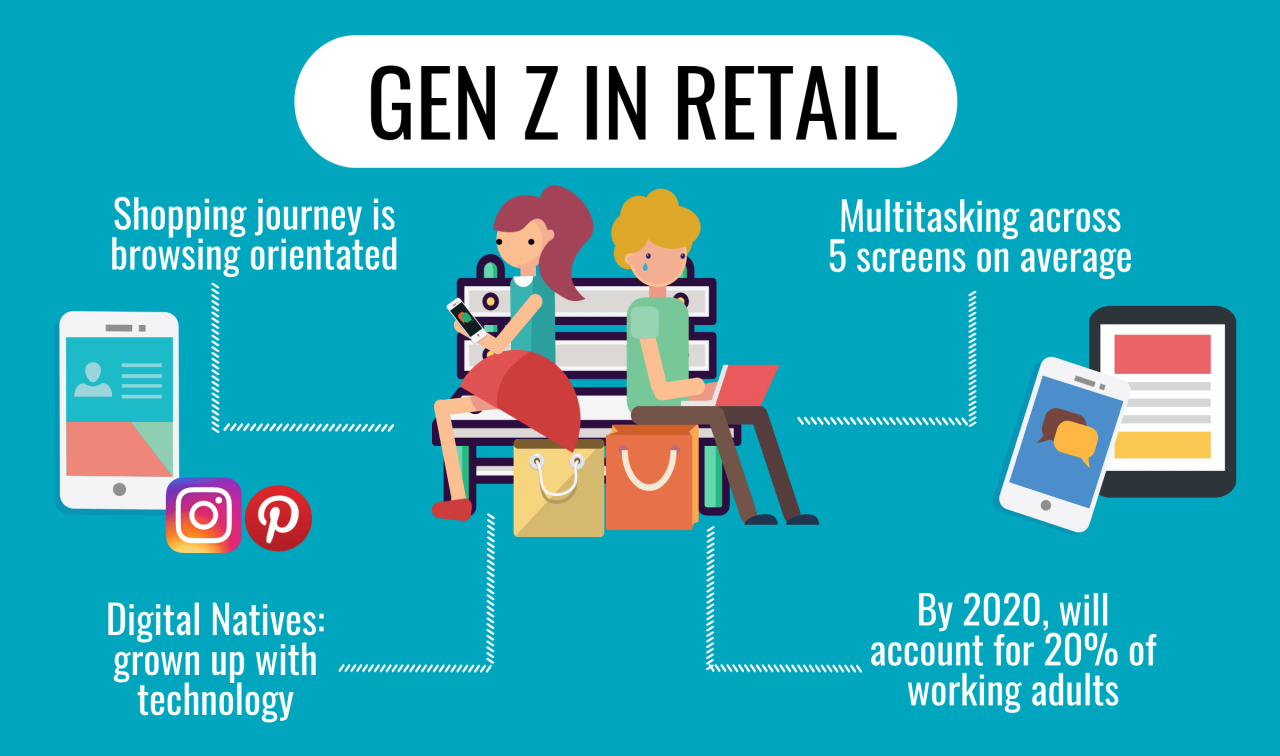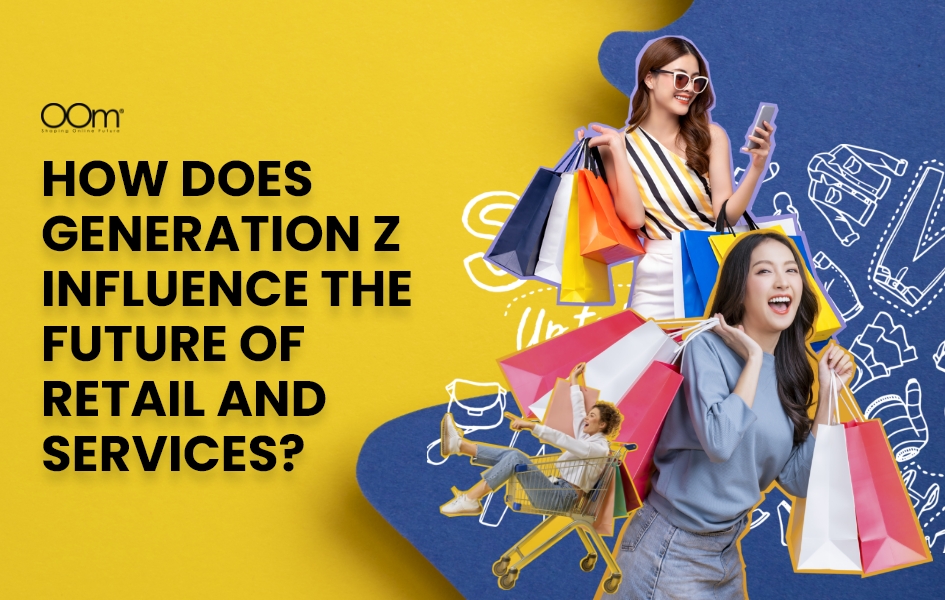Latest retail market shifts driven by Gen Z consumers: A Closer Look at Changing Trends

The retail landscape is continuously evolving, and the driving force behind the latest market shifts is none other than Gen Z consumers. This generation, known for its unique characteristics and preferences, is reshaping the way businesses operate and connect with their audience.
Let's delve into how Gen Z's influence is revolutionizing the retail sector, from online shopping behaviors to sustainability practices and beyond.
Overview of Gen Z Consumers in Retail Markets

Generation Z, typically defined as individuals born between the mid-1990s and early 2010s, is known for its tech-savvy nature, social consciousness, and desire for personalized experiences. This generation values authenticity, sustainability, and inclusivity in the brands they support, making them a significant driving force in shaping retail trends.
Characteristics and Preferences of Gen Z Consumers
- Gen Z consumers prioritize convenience and seamless shopping experiences, often preferring online shopping and quick delivery options.
- They are highly influenced by social media, relying on platforms like Instagram and TikTok for product discovery and recommendations.
- Authenticity is crucial to Gen Z, with a strong emphasis on transparency, ethical practices, and diversity in the brands they choose to engage with.
How Gen Z Influences Retail Trends
- Gen Z's preference for sustainability has led to an increase in demand for eco-friendly products and packaging, pushing brands to adopt more environmentally conscious practices.
- The rise of influencer marketing and user-generated content has become a significant trend in retail, as Gen Z values peer recommendations and authentic brand interactions.
Examples of Brands Successfully Targeting Gen Z Consumers
- Adidas:Known for its collaborations with popular influencers and focus on sustainability, Adidas has successfully appealed to Gen Z consumers looking for trendy, eco-friendly athletic wear.
- Savage x Fenty:Rihanna's inclusive lingerie brand has embraced diversity and body positivity, resonating with Gen Z's values of inclusivity and representation.
Online Shopping Behavior of Gen Z

Gen Z, being digital natives, have a significant impact on online shopping trends. Their comfort and proficiency with digital technologies shape how they interact with online retailers.
Role of Social Media
- Social media plays a crucial role in Gen Z's purchasing decisions. They heavily rely on platforms like Instagram, TikTok, and Snapchat for product discovery and recommendations.
- Peer reviews, influencer endorsements, and user-generated content on social media greatly influence Gen Z's shopping choices.
Importance of Mobile-Friendly Experiences
- Gen Z prefers shopping on their mobile devices due to convenience and accessibility. Retailers need to ensure their websites are optimized for mobile to cater to this demographic.
- Responsive design, fast loading times, and easy navigation are essential for a seamless shopping experience for Gen Z consumers.
Sustainability and Ethical Practices

As Gen Z consumers are becoming more environmentally conscious, their emphasis on sustainability is significantly impacting retail markets.
Demand for Eco-Friendly Products
Gen Z consumers are actively seeking out eco-friendly products that align with their values of sustainability. This has led to an increase in demand for items that are made from recycled materials, are biodegradable, or are produced in an environmentally responsible manner.
- Companies like Patagonia have gained popularity among Gen Z consumers for their commitment to sustainability. Patagonia uses recycled materials in their clothing and actively supports environmental causes.
- Beauty brands like Lush have also catered to Gen Z's demand for eco-friendly products by offering items that are cruelty-free, vegetarian, and packaged in minimal, recyclable packaging.
Companies Implementing Ethical Practices
Many companies have started implementing ethical practices to appeal to Gen Z consumers who prioritize sustainability and ethical considerations in their purchasing decisions.
- Everlane is known for its transparent pricing model and commitment to ethical production practices. They provide detailed information about their factories and the true cost of each item.
- ThredUp, an online thrift store, has capitalized on the growing trend of sustainable fashion by offering second-hand clothing options that reduce waste and promote a circular economy.
Personalization and Customization in Retail
Personalization and customization play a crucial role in the retail industry, especially when targeting Gen Z consumers. These young individuals value unique and tailored shopping experiences that resonate with their individual preferences and interests.
Significance of Personalized Shopping Experiences for Gen Z
- Gen Z consumers seek personalized shopping experiences that make them feel understood and valued by brands.
- Personalization enhances brand loyalty among Gen Z, as they are more likely to engage with companies that offer customized products or services.
- By catering to the specific needs and desires of Gen Z consumers, brands can create a deeper connection and foster long-term relationships.
Impact of Customization Options on Gen Z’s Purchasing Behavior
- Customization options empower Gen Z consumers to express their individuality and stand out from the crowd.
- Personalized products or services increase the perceived value for Gen Z, influencing their purchasing decisions.
- Gen Z is willing to pay a premium for custom-made items that align with their unique style and preferences.
Brands Leveraging Personalization to Attract Gen Z Consumers
- Many brands are utilizing data analytics and AI technology to offer personalized recommendations and shopping experiences to Gen Z consumers.
- Customization tools on websites and apps allow Gen Z shoppers to design their own products, such as sneakers, clothing, or accessories.
- Personalized marketing campaigns through social media and email targeting help brands connect with Gen Z on a more personal level.
Final Wrap-Up
In conclusion, the impact of Gen Z consumers on the retail market is undeniable. As businesses strive to adapt to the changing landscape, catering to the needs and preferences of this generation will be crucial for success. By embracing the shifts driven by Gen Z, companies can not only stay relevant but also thrive in an ever-changing market environment.
FAQ Overview
How do Gen Z consumers influence retail trends?
Gen Z consumers influence retail trends by prioritizing sustainability, seeking personalized experiences, and driving the demand for eco-friendly products.
What role does social media play in Gen Z's purchasing decisions?
Social media plays a significant role in Gen Z's purchasing decisions by influencing their brand choices, product preferences, and overall shopping behavior.
Why is personalization important for attracting Gen Z consumers?
Personalization is crucial for attracting Gen Z consumers as it enhances their shopping experience, fosters brand loyalty, and creates a sense of uniqueness and individuality.

